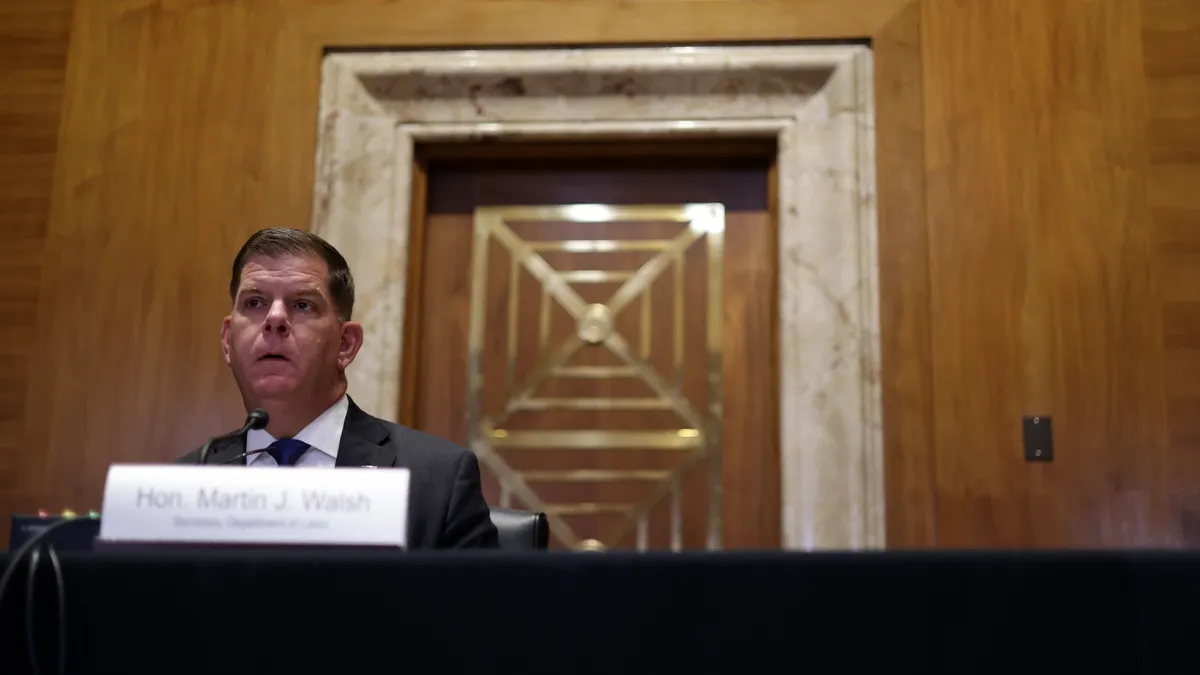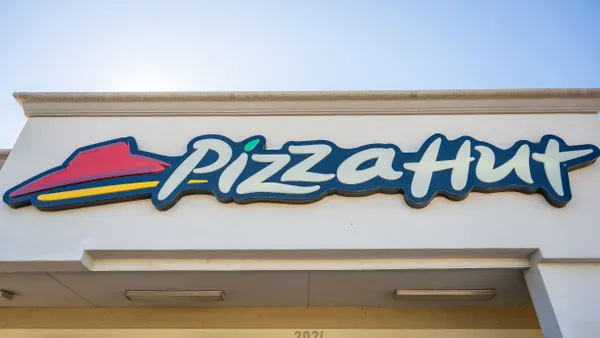Dive Brief:
- Labor Secretary Marty Walsh made a case to boost Occupational Safety and Health Administration staffing during a Senate subcommittee hearing last week, in a request that would increase both the number of safety inspectors and wage-hour investigators who scrutinize employer payroll records by 2024.
- The department's protection agencies lost 14% of their personnel over the last four years, while the DOL has lost around 3,000 employees overall during that span, according to Walsh.
- The department is requesting $2.1 billion in its budget request to Congress for fiscal year 2022 for worker protection agencies, including $73 million for OSHA, a 17% increase from last year. The proposal, which would bring overall Labor Department funding to $14.2 billion, must be approved by Congress.
Dive Insight:
Since the COVID-19 pandemic began limiting the amount of in-person inspections that the agency can perform, OSHA has not been providing the level of oversight needed to keep workers safe, according to a report from the department's inspector general. A boost in the budget would allow it to "conduct the enforcement and regulatory work needed to ensure workers' wages, benefits, and rights are protected, address the misclassification of workers as independent contractors and improve workplace safety and health," Walsh said during the hearing.
The loss of staff during former President Donald Trump's administration has compromised the ability of the department's worker protection agencies to do their job, Walsh noted.
"A lack of enforcement makes workers more vulnerable to workplace violations," he said.
Walsh also touched on President Joe Biden's infrastructure proposal, the American Jobs Plan, one of several being debated on Capitol Hill right now.
He noted that the American Jobs Plan would provide funding for training programs focused on growing, high-demand sectors, such as clean energy, manufacturing and caregiving. It also includes many labor-focused initiatives.
"The plan provides critical funding to strengthen the capacity of our labor enforcement agencies to prevent discrimination, protect wages and benefits, enforce health and safety rules and strengthen health care and pension plans," said Walsh. "In addition to these investments, the president is calling for increased penalties when employers violate workplace safety and health rules, which have proven inadequate to address serious violations."















